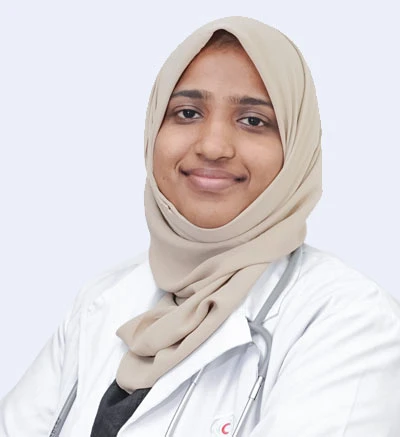The Department of Dermatology El Cosmetology at Starcare Hospital offers complete skin care. At our hospital, we have experienced Dermatologists to provide various skin treatments such as Dermatopathology, Pediatric Dermatology, Mohs Surgery, Cosmetic Dermatology, and Chemical Peel Treatment. We have best-in-class equipment to diagnose and provide result-proven treatment methods for people suffering from various skin diseases.
It's a branch of medicine dealing with the skin condition.
Dermatologists are Skin Doctors who treat conditions affecting the skin, hair, nails, and certain cosmetic issues.
At Starcare Hospital, our Skin Specialists are trained and proficient in providing skin treatment for patients suffering from various skin diseases.
Dermatopathology- combines dermatology with pathology. The samples of hair and skin are used to examine and study under a microscope in a laboratory to diagnose the early stages accurately.
Pediatric dermatology: Children who suffer from diseases that affect their skin, hair, or nails should be taken to a Pediatric Skin Doctor. Diaper rashes are the most common condition in infants between 9 and 12 months. The best way to prevent this is to keep the diaper area clean and dry by frequently changing the diaper and applying barrier ointment to those containing zinc oxide, for example, Desitin and triple paste.
Mohs surgery: If one has skin cancer, they may have to seek the help of a Mohs surgeon for skin treatment. Our hospital has state-of-the-art machines and surgeons to perform world-class MOH Skin Surgery, resulting in effective treatment.
Cosmetic dermatology- that treats to improve the appearance of skin. At our Starcare Hospital, our Dermatologists provide skin treatment, including procedures like derma fillers, Botox, chemical peels, and laser removal to diminish scars, wrinkles etc.
Dr Fibin Thanveer, Senior Consultant of Dermatology, has explained in detail how it works:
A chemical peel uses a chemical solution to remove layers of the skin, revealing the youthful skin underneath. The new complexion is smoother and brighter than before the chemical peel treatment.
Our Dermatologist uses a face washer with a good cleanser to remove excess oils from the face, protecting the eyes and hair during the procedure. Glycolic, salicylic, lactic, and carbolic acids are frequently used as chemical solutions in the treatment.
Then, after 5-10 minutes, the face is washed, and sunscreen is applied. It's not at all a painful process. It helps in facial rejuvenation and skin damaged by tan, sunexposure, and pigmentation, treating pimples and acne on the back, underarm whitening, and dark circles under the eyes.
Most chemical peels are applied to the face, neck, and hands of people who have mild scarring, sun spots, age spots, freckles, uneven skin tone, dull complexions, or melasma as a result of pregnancy or the use of birth control pills, are the skin treatment methods performed by our highly trained Dermatologists to provide efficient treatment.
At Starcare Hospital, our Skin Doctors suggest patients avoid tanning and sun exposure for at least two weeks before the treatment, apply topical products such as hydroquinone as instructed, and don't use retinoids two weeks before treatment. The possible complications of chemical peels are taking birth control pills, pregnancy, or having a family history of brownish discolouration on your face that may lead to the risk of developing pigmentation. Also, a low risk of scarring in certain facial areas may be seen.
Dr Daisy Thomas, Senior Consultant Dermatology, Starcare Hospital, a very efficient Skin Doctor, recommends patients use sunscreen with an SPF of at least 30, which blocks 97% of the sun's UV rays. Our dermatologists suggest the patient apply sunscreen using an index fingertip, taking half a teaspoon and applying it all over the face, neck, ears, hands, and feet.
It is advised to reapply every two hours. Our Skin Doctor suggests patients prefer sunscreens in all seasons and are allergic to sunlight and its radiation. Some sunscreens can leave a glowing finish with ingredients that reflect light or by having a good base of hydrating ingredients to improve skin quality while protecting it.
Avoiding sunscreen may lead to hyperpigmentation and increase melanin production. Our Skin Specialists share home remedies to reduce pigmentation, such as milk and buttermilk, to lighten skin colour in addition to medication. Applying it over the dark areas of the skin twice a day aids in quicker recovery and improved Dermatology Treatment effectiveness.
Our Skin Specialist suggests antioxidant and anti-inflammatory agents like green tea, aloe vera gel, turmeric, rice water, apple cider vinegar, and water, depending on the patient's condition, to eliminate the chances of other side effects.

Days : Except TUE (9 AM to 2 PM)
Dr. Fibin Thanveer, Consultant Dermatologist has more than 7 years of experience in the specialty. Her area of special interest is Pediatric Dermatology and Cosmetic Procedures. She has also received special training in Dermatologic surgery and has undergone training to perform advanced procedures.
MD Dermatology: Calicut Medical College
DVD (Diploma in Dermatology & Venereal Diseases): Calicut Medical College
MBBS: Medical College, Pariyaram, Kannur
ACS(I) Fellowship in Dermatosurgery (VM Medical College & Safdarjung Hospital, Delhi
Worked as Consultant Dermatologist in two multispecialty Hospitals in the past.

TCMC: 39646
OP- Every Tuesdays 4.30pm to 6.30pm.
Copyright 2025 Starcare Healthcare. All rights reserved.
Designed & Developed by Appac Mediatech Pvt Ltd.